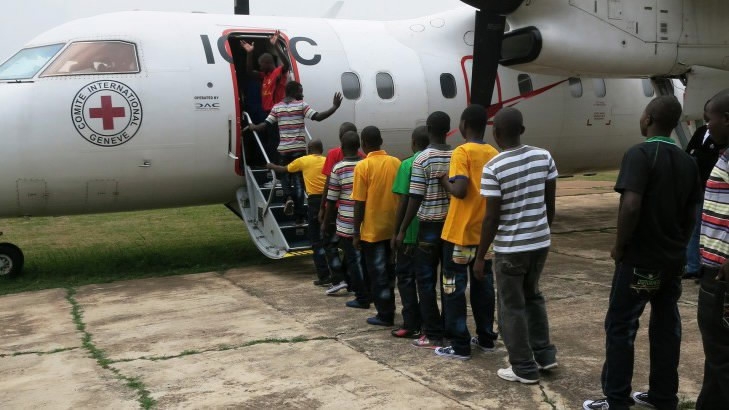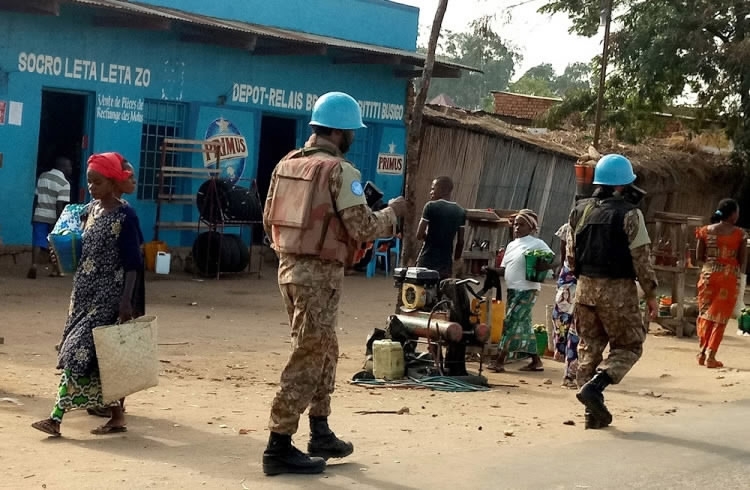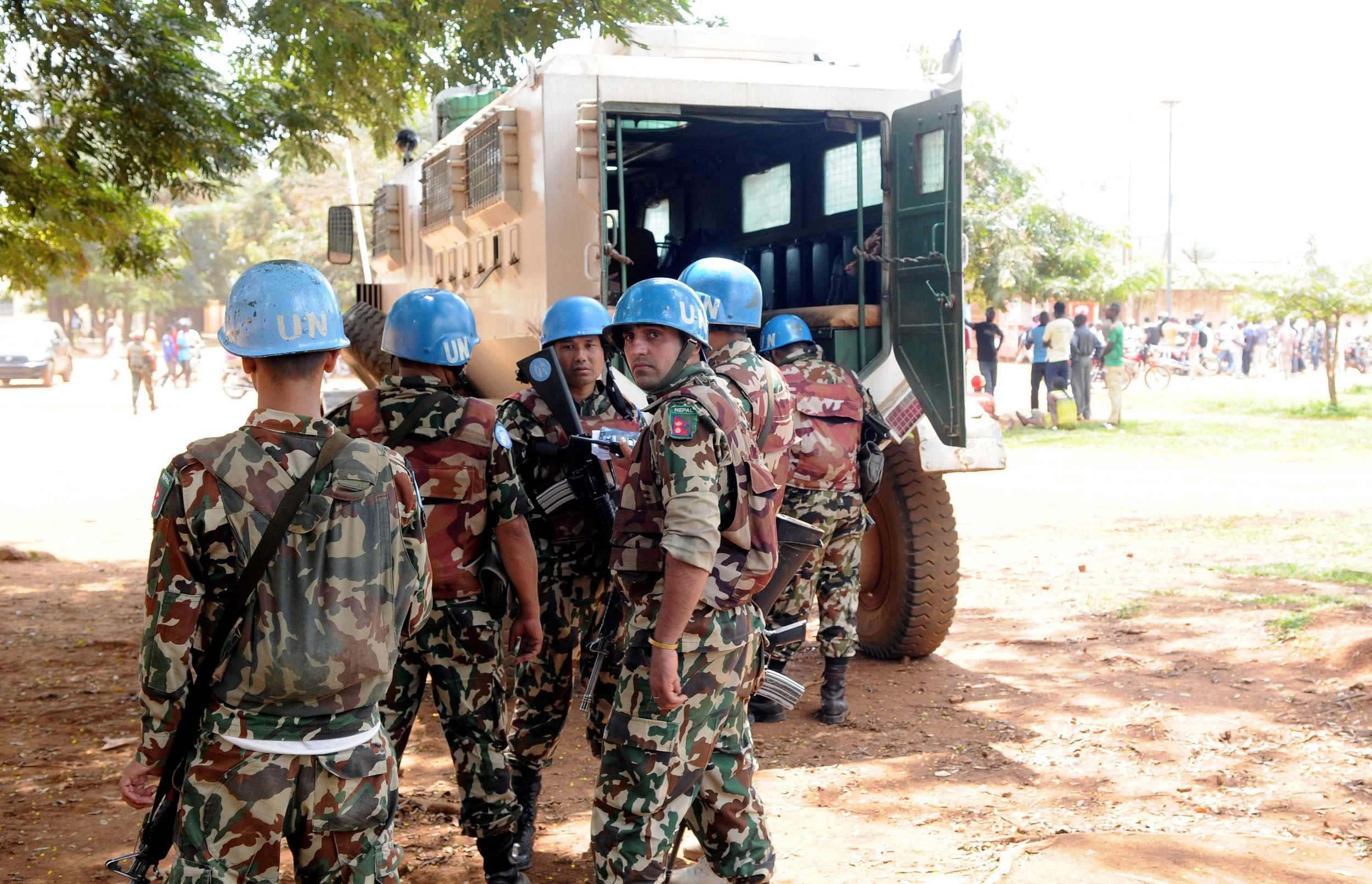
Opinions
17:32, 24-Dec-2017
Opinion: How to compensate Congolese child soldiers
Guest commentary by Liam Lee

Christmas has come to the western world, but the angel in The Bible seems hard to reach in one corner in this planet – the Democratic Republic of the Congo’s Great Lakes region. During this year's African trip, Congo impressed me most, especially in their attempts to reintegrate former child soldiers caught up in the civil war. What kind of compensation will they get? What is the future for them?
If the DR Congo can choose a word of the year, I am afraid "slaughter" will be one of them. The UN peacekeeping group has been frequently attacked, even two experts in the Congo for the UN Security Council were killed. Every day I worked in the southern mineral zone feeling nervous to step out of a hotel with electric fencing.
In addition to underage workers in mines, the problem of child soldiers or scouts also attracted global attention. According to the International Criminal Court (ICC), most cases were related to DR Congo, the most high profile of which involved Thomas Lubanga, a Congolese warlord who was convicted of recruiting child soldiers in 2012 in the first verdict since the ICC was established in 2002.

Peacekeepers serving in the UN Organization Stabilization Mission in the Democratic Republic of the Congo (MONUSCO) patrol the streets of Uvira, South Kivu, in DR Congo Sept. 30, 2017. /Reuters Photo
Peacekeepers serving in the UN Organization Stabilization Mission in the Democratic Republic of the Congo (MONUSCO) patrol the streets of Uvira, South Kivu, in DR Congo Sept. 30, 2017. /Reuters Photo
During a court hearing, the fact that Lubanga's army recruited girls and encouraging males to rape them was also uncovered.
After recruitment, these kids participated in fight camps and underwent high-strength military training. When it was over, they would get military uniforms, guns and ammunition. Some of them even lost their lives at war.
But the question remains, how do you compensate these children?
The Kingshasa government's “Disarmament, Demobilization and Returning to Society "plan coordinator Ntumba Luaba once said 32,000 children have left the armed groups. He added that the number of active scouts in Congo number nearly 8,000 in anti-government armies and militia.
Based on the ICC compensating rule for the victims, there are two ways to go. One is by confiscating the criminals’ assets; the other is through the allocation of national funds. But neither will be easy to accomplish. As a consequence, as an old saying goes in China, "mendicant or begging bowl " which is really saying get the money from the global society's trust fund.

Peacekeepers from The United Nations Organization Stabilization Mission in the Democratic Republic of the Congo (MONUSCO) after a clash between the army and militia fighters in Beni, eastern Democratic Republic of the Congo, June 22, 2017./ VCG Photo
Peacekeepers from The United Nations Organization Stabilization Mission in the Democratic Republic of the Congo (MONUSCO) after a clash between the army and militia fighters in Beni, eastern Democratic Republic of the Congo, June 22, 2017./ VCG Photo
What form should the compensation take? Once, or by stages? Why are so many experts inclined to insist that the scouts’ families should not be compensated?
This is a conclusion made after deep research. Nowadays, few international organizations or institutions investigate the social conditions of Congo scouts, but it is similar to the underage workers in the mining industry. Almost all children were willing to join the scouts. Starvation or fight? The children and their parents chose the latter with no hesitation.
If a collective compensation system is adopted in the future, scouts' parents will get compensation, to some degree, which, the argument goes, encourages them to use their children as a profit-making tool in places with rebel armies, let alone people traffickers.
The last question, if we establish a sustainable collective compensating and returning-to-society system, how much will it cost? According to the social development level in the east and north Congo, 50 US dollars will be enough for a junior child to study in a public school for one semester (the tuition fee in a public school in Luaaba province is six dollars per month), plus basic living expenses. About 300 dollars will be enough for a junior child, for both living and study expenses. That is the same as a nurse's monthly income in public hospital, but much less than a miner's.
In this way, 30,000 children will sustainably cost about ten million dollars in a year. In three, five to ten years for the consecutive service program, we need to find a 100-million-dollar trust fund.
In the DR Congo, the mining companies from the US, Belgium, Switzerland, Lebanon, South Africa and China, which benefit a lot, should take some measures collectively to help these scouts in different ways, and transparently purchase some education and services provided by international organizations through the trust fund.
A sustainable welfare sector for scouts is needed. If the global society can get rid of the situation of "only talk, no action," these scouts will have a chance to return to normal society.
For every conscientious global citizen, seeding peace and kindness in these children’s hearts rather than war and hatred should be the common goal.
(The author is chairperson of the China Africa Correspondents Club and a senior international desk correspondent based in Beijing. The article reflects the author’s opinion, and not necessarily the views of CGTN.)

SITEMAP
Copyright © 2018 CGTN. Beijing ICP prepared NO.16065310-3
Copyright © 2018 CGTN. Beijing ICP prepared NO.16065310-3